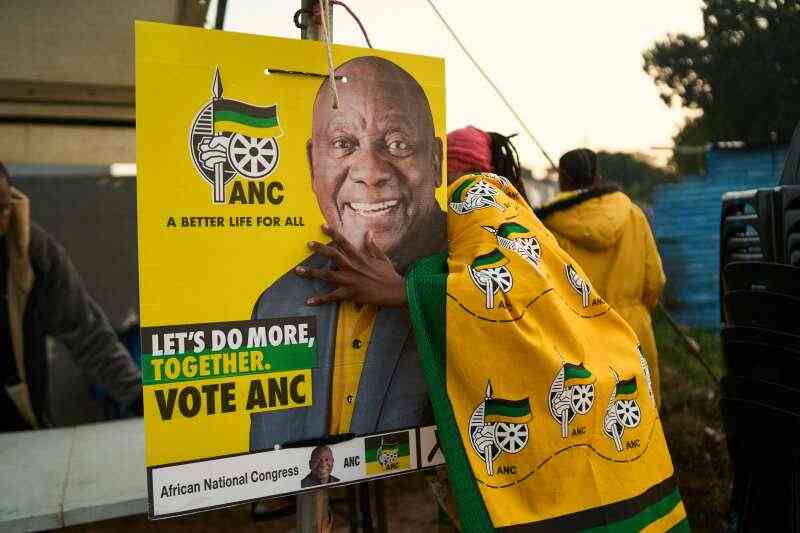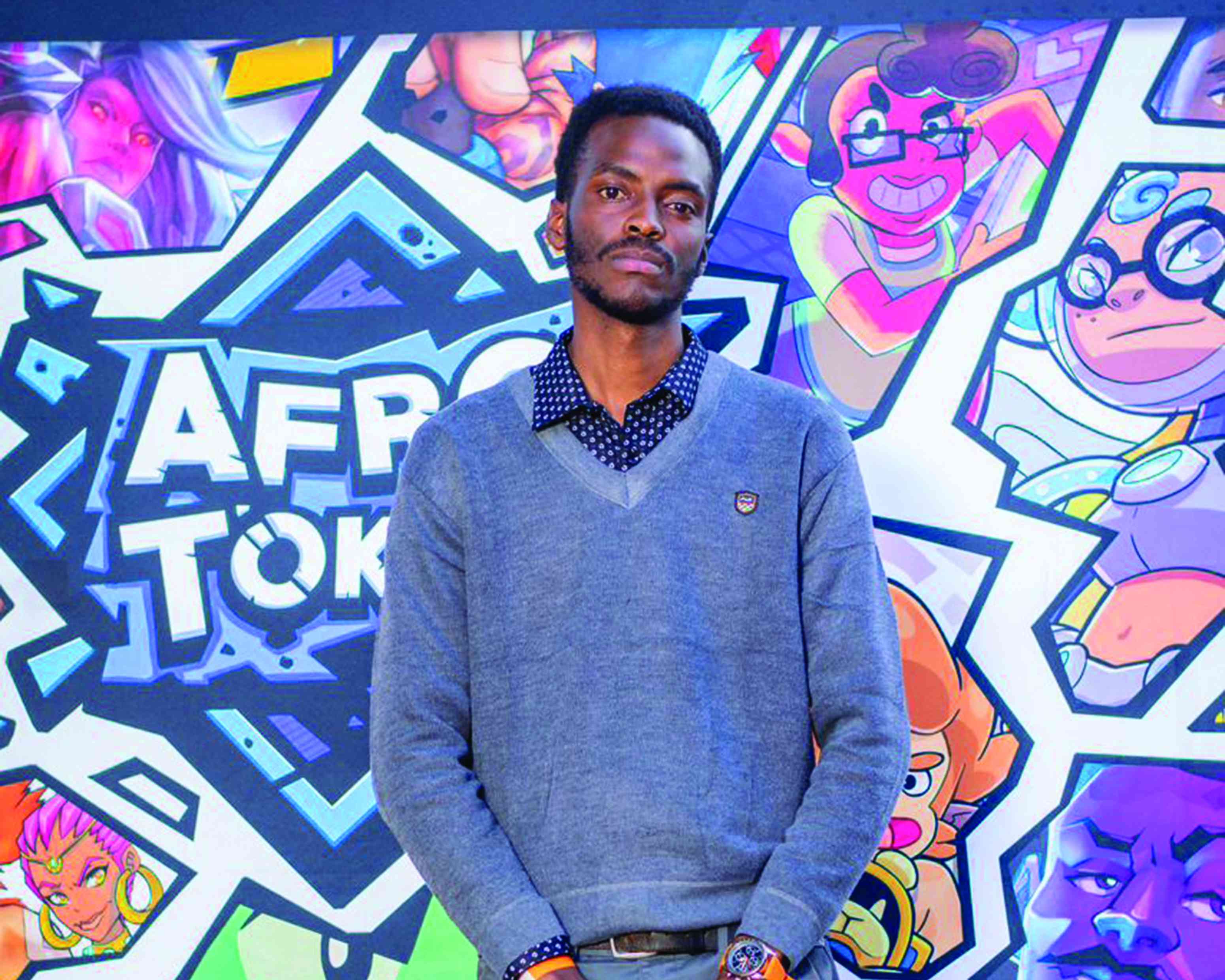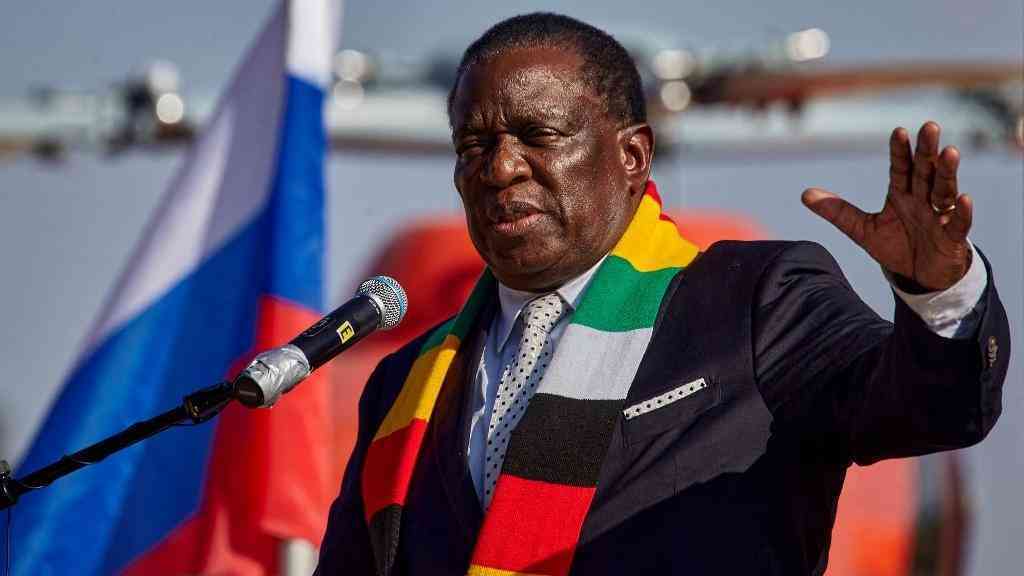
SOUTH AFRICA held general elections on Wednesday and results trickling in are sending shivers down the spines of regional liberation movements.
The ruling African National Congress (ANC) is set to lose its parliamentary majority and forced into a coalition government.
The writing has always been on the wall after the formation of new political party, uMkhonto Wesizwe, fronted by ANC member and former South Africa President Jacob Zuma.
Many political pundits could smell that for the first time ANC would lose three provinces — KwaZulu Natal, Western Cape and Gauteng — which would take its national tally to below 50% and force the formation of a coalition government.
The ANC seems to have mishandled Zuma when he was sentenced to 15 months in prison for contempt of court.
There was mayhem in KZN and Gauteng caused by people who sympathised with Zuma.
Zuma is their leader and it began taking a tribal tone — the Zulus had an axe to grind with the ANC.
On the other hand, Economic Freedom Fighters (EFF) led by Julius Malema has remained a thorn in the backside of ANC since the former ANC youth leader formed his party 11 years ago.
- Cheeky armed robbers jailed 10 years each
- Dangers of Arab Spring in SA
- Dangers of Arab Spring in SA
- Ramaphosa faces ANC leadership challenge
Keep Reading
It is plain simple that EFF and MK — both splinters of ANC — have caused the greatest damage to the ruling party.
What is the charge sheet against ANC that has made it less popular beyond the metropolitan areas?
Top of the list is abetting corruption, defending party members implicated in corrupt dealings and failure to offer basic and consistent social services.
After 30 years at the helm, the ANC has nowhere to hide. Thirty years is a long time and the fruits of their leadership should be available.
Unfortunately, more people now rely on social grants than working and social services are on the decline and erratic.
Losing three provinces — KZN, Western Cape and Gauteng — the ANC now is more of a rural party and its support is waning too.
This has rattled other liberation movements in the region like Zanu PF in Zimbabwe, Frelimo in Mozambique, Swapo in Namibia and MPLA in Angola.
That the ANC losing in South Africa sends the wrong signals to the fraternity, a brotherhood that mollycoddles each other at their meetings.
They rarely tell each other the truth as a way to rejuvenate their parties and remain relevant.
They don’t ask each other why they have been failing to deliver since independence.
Zimbabwe’s presidential spokesman George Charamba writing as @dhonzamusoro007 on microblogging site X (formerly Twitter) on Thursday was already thinking how the ANC can cobble a coalition government.
Charamba posted: “I differ with you on this one @KMutisi!!! In the unlikely event @MyANC slips below 50+ — which I don’t expect — and slips by say a point or two to settle at, say 48% or even 45%, clever politics bids that it avoids coalition with parties with a relatively strong showing to preserve its dominance and policy intentions/programmes, post-election. Worse when these parties are renegades.
“That’s at a broad and strategic level; at a basic tactical level, the fallout is so bad that no such configuration is conceivable. Anyway, #ANCWINS!”
Twenty-four hours later, Charamba advised that the ANC is in crunch time and has to go full popularist like Zanu PF, I guess.
“I argue that Malema and EFF’s historic mission was never to govern, it was to agenda-set and cause-promote! On that, it did superbly well!” he wrote.
“Whichever way the election goes, Nelson Mandela’s neoliberal agenda is now dead, very dead! South Africa politics have now entered the bite-the-bullet radical phase!”
Academic Ibbo Mandaza had a different take on the results coming in.
He argued that the elections in South Africa are taking a tribal and racial turn that is not good for the country and region.
Mandaza posted on his X handle @ibbosnr: “Yes, very unsettling results emerging in the elections in South Africa, reflecting as they do the symptoms of the national question generally and ethnic (read also race and colour) expression: for example, the extent to which MK emerges dominant in only one province, but is projected onto the national as the third party when, in reality, it’s virtually unknown in the country as a whole. Hey! Beware our unresolved questions!”
It becomes very obvious why Zanu PF in 1989 changed Zimbabwe’s electoral system — from proportional representation to Westminster first past the post constituency system.
Was it that it had lost all seats in Matabeleland in 1980 and 1985, even at the height of the genocidal Gukurahundi massacres?
It seems Zanu PF under Robert Mugabe had noticed and wanted to abuse the Shona demography. Zimbabwe politics were imbued in ethnicity.
However, South Africa is now at that juncture that it has to deal with the hand their politics has dealt them.
South Africans have to learn from Germany, Israel and Italy on how to cobble coalitions and make them run for the duration of a parliamentary life.
When properly implemented, it can lead to even development across the country and improve social services delivery.
Every member of the coalition will want it to work and that they remain relevant. It fosters a culture of compromise and collaboration.
The winds of change are rising and coming fast, probably it’s time that liberation movements stop their entitlement mentality — we fought for liberation — and start working with others to deliver on the promise of the struggle.
For now, we know in Harare, Maputo, Luanda and Windhoek, the former liberation movements are cracking their heads to understand what hit the ANC and how they can salvage the system.
However, the only solution lies in liberation parties being adaptive and stopping being rigid in dealing with national politics, stop accusing opponents of being puppets of the West or to persecute them for being critical to their leadership.
I’m out!
Paidamoyo Muzulu is a journalist based in Harare. He writes here in his personal capacity.










